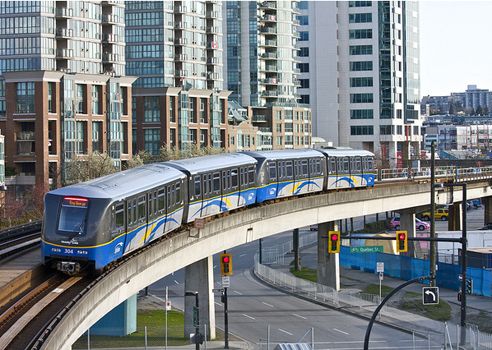Reading time: About 2 minutes
When the votes are counted in the BC transit plebiscite, I fear the answer is going to be a resounding no…
A mail-in vote — a plebiscite — is being held now in Greater Vancouver, where I live. Citizens are voting on whether they’re willing to pay a 0.5 per cent sales tax in exchange for an upgraded rapid transit system: more rapid transit, hundreds of more buses, and a new bridge. Total cost for all of this? $7.5 billion over a decade.
When I heard about the plebiscite I was exited. I’m a huge believer in public transit and would love to see my hometown enjoy the benefits of a transit system like the one available in Vienna, Austria. There, six lines — operating in more-or-less concentric circles — wrap themselves around the city. When I was in Vienna, last summer, we never had to wait longer than six minutes for a train.
Sadly, it looks as though the Vancouver plebiscite will not pass. Why? If you ask me, it’s because communications were bungled. Mind you, this is only partly the fault of the people leading the campaign. Here’s what’s gone wrong:
- Persuading people to pay higher taxes isn’t easy. You need to make a convincing case. Doing the ground work requires polling (to determine the issues that resonate most with voters and which funding options they prefer) and developing a detailed plan. This kind of work takes years, not weeks. The team hasn’t had nearly enough time.
- The campaign has been ham-fisted. In fact, it’s not even clear who’s running it. Read the comments to an intriguing story by Frances Bula and learn how no one wants to touch this thing! Even “supportive” stories in places like the VanCity Buzz — such “The Transit Plebiscite: A Kiwi’s perspective” — end up reading like advertorials (in other words, as if someone were paying for them.)
- People in Vancouver perceive Translink — the people who run our transit system — to be an out-of-touch bunch of fat-cats. This is in part because they have to go to the public every time they want more than an incremental amount of extra revenue. (Compare this to healthcare, which gets its money quietly from the treasury board.) In fact, organizers had no plan to deal with this perception until very late in the game, when they fired the CEO (which only drew more attention to his large salary) and appointed high profile Jimmy Pattison to monitor Translink’s spending.
All of this has been too little, too late. I voted yes, but I suspect that fewer than 50% of my fellow citizens agreed with me. Voting closes May 29. Results are expected to take a couple of weeks.

